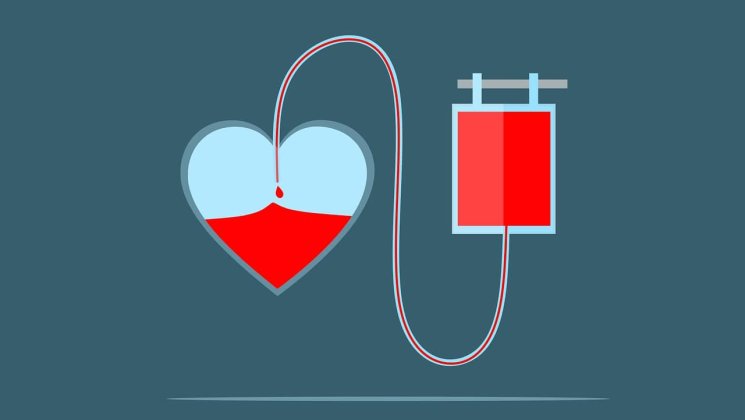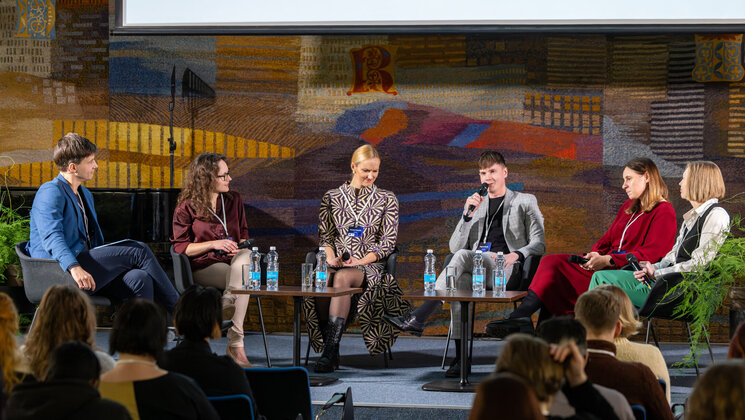-
Faculty of Arts and HumanitiesDean's Office, Faculty of Arts and HumanitiesJakobi 2, r 116-121 51005 Tartu linn, Tartu linn, Tartumaa EST0Institute of History and ArchaeologyJakobi 2 51005 Tartu linn, Tartu linn, Tartumaa EST0Institute of Estonian and General LinguisticsJakobi 2, IV korrus 51005 Tartu linn, Tartu linn, Tartumaa EST0Institute of Philosophy and SemioticsJakobi 2, III korrus, ruumid 302-337 51005 Tartu linn, Tartu linn, Tartumaa EST0Institute of Cultural ResearchÜlikooli 16 51003 Tartu linn, Tartu linn, Tartumaa EST0Institute of Foreign Languages and CulturesLossi 3 51003 Tartu linn, Tartu linn, Tartumaa EST0School of Theology and Religious StudiesÜlikooli 18 50090 Tartu linn, Tartu linn, Tartumaa EST0Viljandi Culture AcademyPosti 1 71004 Viljandi linn, Viljandimaa EST0Professors emeriti, Faculty of Arts and Humanities0Associate Professors emeriti, Faculty of Arts and Humanities0Faculty of Social SciencesDean's Office, Faculty of Social SciencesLossi 36 51003 Tartu linn, Tartu linn, Tartumaa EST0Institute of EducationJakobi 5 51005 Tartu linn, Tartu linn, Tartumaa EST0Johan Skytte Institute of Political StudiesLossi 36, ruum 301 51003 Tartu linn, Tartu linn, Tartumaa EST0School of Economics and Business AdministrationNarva mnt 18 51009 Tartu linn, Tartu linn, Tartumaa EST0Institute of PsychologyNäituse 2 50409 Tartu linn, Tartu linn, Tartumaa EST0School of LawNäituse 20 - 324 50409 Tartu linn, Tartu linn, Tartumaa EST0Institute of Social StudiesLossi 36 51003 Tartu linn, Tartu linn, Tartumaa EST0Narva CollegeRaekoja plats 2 20307 Narva linn, Ida-Virumaa EST0Pärnu CollegeRingi 35 80012 Pärnu linn, Pärnu linn, Pärnumaa EST0Professors emeriti, Faculty of Social Sciences0Associate Professors emeriti, Faculty of Social Sciences0Faculty of MedicineDean's Office, Faculty of MedicineRavila 19 50411 Tartu linn, Tartu linn, Tartumaa ESTInstitute of Biomedicine and Translational MedicineBiomeedikum, Ravila 19 50411 Tartu linn, Tartu linn, Tartumaa ESTInstitute of PharmacyNooruse 1 50411 Tartu linn, Tartu linn, Tartumaa ESTInstitute of DentistryL. Puusepa 1a 50406 Tartu linn, Tartu linn, Tartumaa ESTInstitute of Clinical MedicineL. Puusepa 8 50406 Tartu linn, Tartu linn, Tartumaa ESTInstitute of Family Medicine and Public HealthRavila 19 50411 Tartu linn, Tartu linn, Tartumaa ESTInstitute of Sport Sciences and PhysiotherapyUjula 4 51008 Tartu linn, Tartu linn, Tartumaa ESTProfessors emeriti, Faculty of Medicine0Associate Professors emeriti, Faculty of Medicine0Faculty of Science and TechnologyDean's Office, Faculty of Science and TechnologyVanemuise 46 - 208 51003 Tartu linn, Tartu linn, Tartumaa ESTInstitute of Computer ScienceNarva mnt 18 51009 Tartu linn, Tartu linn, Tartumaa ESTInstitute of GenomicsRiia 23b/2 51010 Tartu linn, Tartu linn, Tartumaa ESTEstonian Marine Institute0Institute of PhysicsInstitute of ChemistryRavila 14a 50411 Tartu linn, Tartu linn, Tartumaa EST0Institute of Mathematics and StatisticsNarva mnt 18 51009 Tartu linn, Tartu linn, Tartumaa EST0Institute of Molecular and Cell BiologyRiia 23, 23b - 134 51010 Tartu linn, Tartu linn, Tartumaa ESTTartu ObservatoryObservatooriumi 1 61602 Tõravere alevik, Nõo vald, Tartumaa EST0Institute of TechnologyNooruse 1 50411 Tartu linn, Tartu linn, Tartumaa ESTInstitute of Ecology and Earth SciencesJ. Liivi tn 2 50409 Tartu linn, Tartu linn, Tartumaa ESTProfessors emeriti, Faculty of Science and Technology0Associate Professors emeriti, Faculty of Science and Technology0Institute of BioengineeringArea of Academic SecretaryHuman Resources OfficeUppsala 6, Lossi 36 51003 Tartu linn, Tartu linn, Tartumaa EST0Area of Head of FinanceFinance Office0Area of Director of AdministrationInformation Technology Office0Administrative OfficeÜlikooli 17 (III korrus) 51005 Tartu linn, Tartu linn, Tartumaa EST0Estates Office0Marketing and Communication OfficeÜlikooli 18, ruumid 102, 104, 209, 210 50090 Tartu linn, Tartu linn, Tartumaa EST0Area of Vice Rector for DevelopmentCentre for Entrepreneurship and InnovationNarva mnt 18 51009 Tartu linn, Tartu linn, Tartumaa EST0University of Tartu Natural History Museum and Botanical GardenVanemuise 46 51003 Tartu linn, Tartu linn, Tartumaa EST0International Cooperation and Protocol Office0University of Tartu MuseumLossi 25 51003 Tartu linn, Tartu linn, Tartumaa EST0Area of RectorRector's Strategy OfficeInternal Audit OfficeArea of Vice Rector for Academic AffairsOffice of Academic Affairs0University of Tartu Youth AcademyUppsala 10 51003 Tartu linn, Tartu linn, Tartumaa EST0Student Union OfficeÜlikooli 18b 51005 Tartu linn, Tartu linn, Tartumaa EST0Centre for Learning and TeachingArea of Vice Rector for ResearchUniversity of Tartu LibraryW. Struve 1 50091 Tartu linn, Tartu linn, Tartumaa EST0Grant Office
Over 12,000 square metres of camouflage nets have been made at the University of Tartu for Ukraine

The new year starts differently for everyone. The start of the year often involves promises, mostly made to ourselves – for example, to exercise more and eat healthily, or to spend more time with family. The list of promises could also include one to find time for charity or to get involved in a voluntary organisation. Such an opportunity is offered at the University of Tartu by MTÜ Aitan Kaitsta (Helping Defend), which brings together volunteers to help Ukraine.
For almost three years, camouflage net weaving for the Ukranian armed forces has been taking place at the Institute of History and Archaeology and the Institute of Molecular and Cell Biology at the University of Tartu. It is a calming activity that anyone can do. We are looking for new weavers to join again this year.

Volunteers can weave camouflage nets and helmet covers at
- Philosophicum (Jakobi 2) every Wednesday at 16:00–20:00 (contact persons: Kristel Kajak, kristel.kajak@ut.ee; Kristiina Johanson, kristiina.johanson@ut.ee),
- Omicum (Riia 23b/2) every work day at 9:00–17:00 (contact person: Signe Värv, signe.varv@ut.ee).
There is always a supervisor present to give you some initial tips on how to make a good-quality camouflage net with a guaranteed protective function.
In addition to weaving, volunteers have organised campaigns to collect school supplies and toys for civilians, and have sent seasonal children's clothes and footwear to Ukraine, hygiene supplies for the front, non-perishable foods, trench lighters, battery banks and other aid. Bedding, T-shirts and sweatpants have been sent to hospitals.
In addition, many volunteers knit woollen socks, which are shipped together with the nets. They are still in high demand. Most of the materials come to us from recycling, so the cost of the activity is low. In addition to physical help, donations can be made to the account of MTÜ Aitan Kaitsta EE487700771011351792 (payment description: Tartu konto).
Until 2 February, there is also a campaign during which you can bring residual candle wax to the cardboard box in the lobby of the Jakobi 2 academic building to be used to make candles for trenches. The candles can still have wicks and be in their containers. We collect suitable textile material for the camouflage nets throughout the year, but for the latest information on ongoing collection campaigns, please contact the persons in the above weaving sites. The weavers at Jakobi 2 have their own mailing list (jakobi2.varjevorgud@lists.ut.ee) which anyone can join on Sympa. You can also write to Kristel Kajak (kristel.kajak@ut.ee) to be added in the list.
Camouflage nets have been woven all over Estonia under the auspices of MTÜ Aitan Kaitsta since March 2022. Over 55,000 square metres of camouflage nets and 5,200 helmet covers have been sent to Ukraine so far. The first camouflage nets were sent from the University of Tartu to Ukraine on 13 April 2022. Over 12,599 square metres of camouflage nets and 1,202 helmet covers have since been made at both weaving sites of the university.
In February last year, European journalists visited Tartu as part of the European Capital of Culture Tartu 2024, including the university’s weaving sites. The weaving site at Omicum was covered by the French publication LeDevoir, while snippets of weavers at Philosophicum can be seen in a film by German media channel VDR.
Read more similar news

04.03.2024





